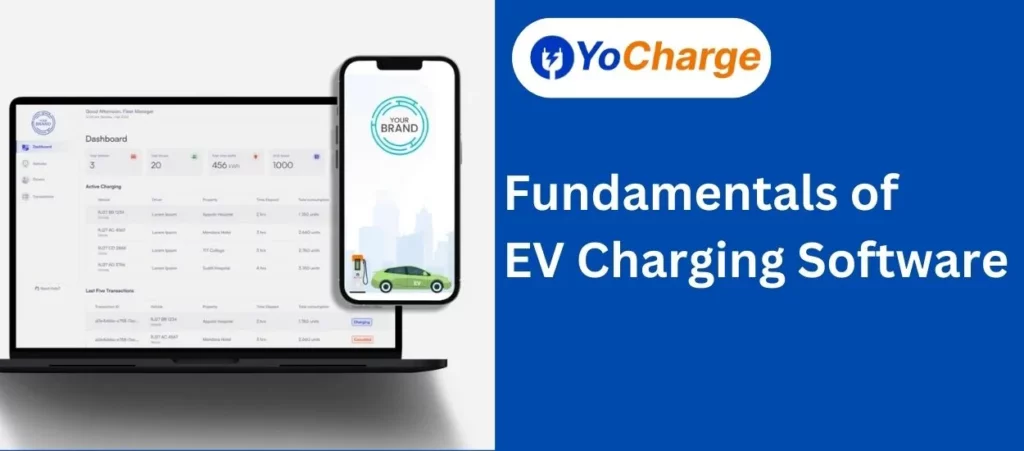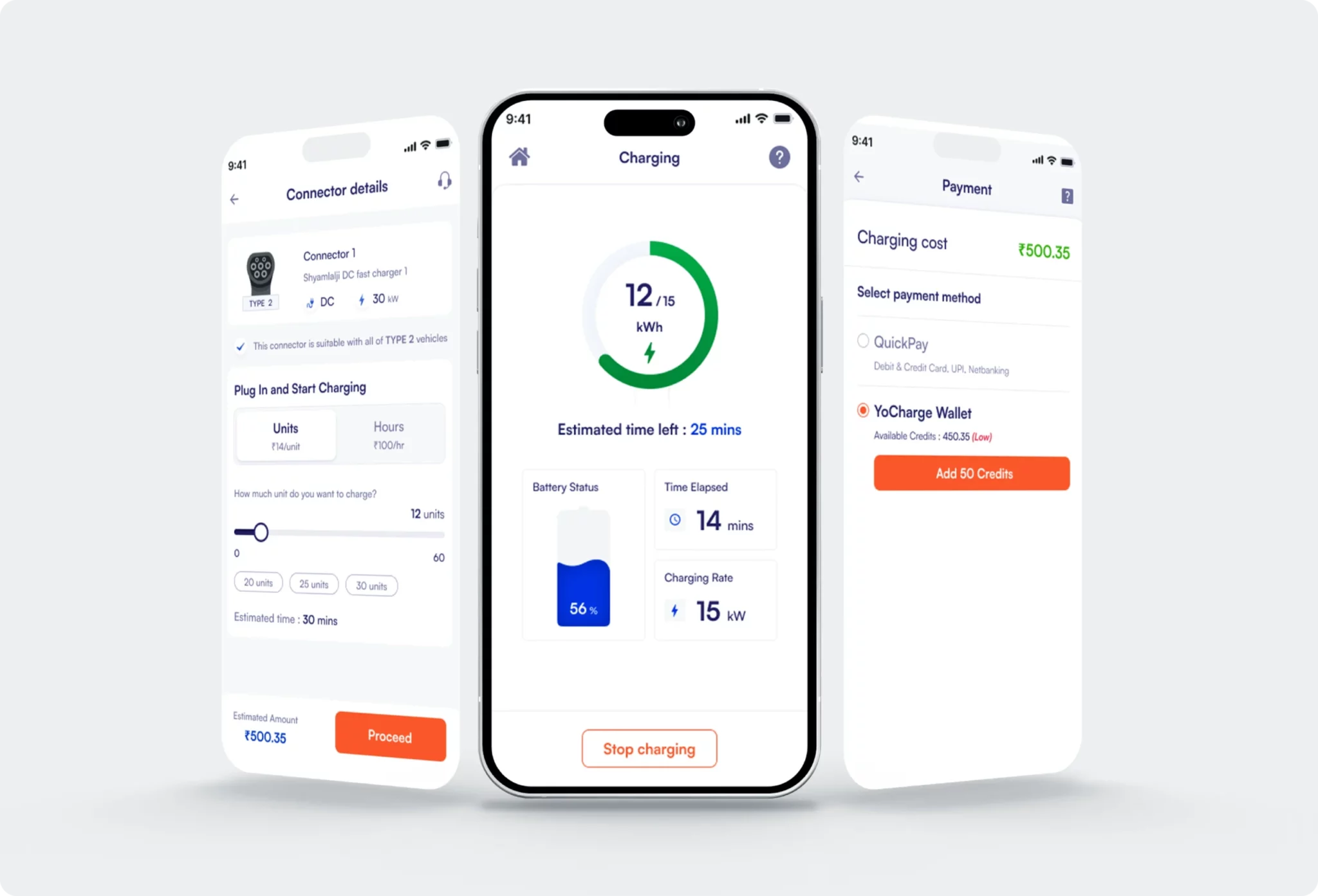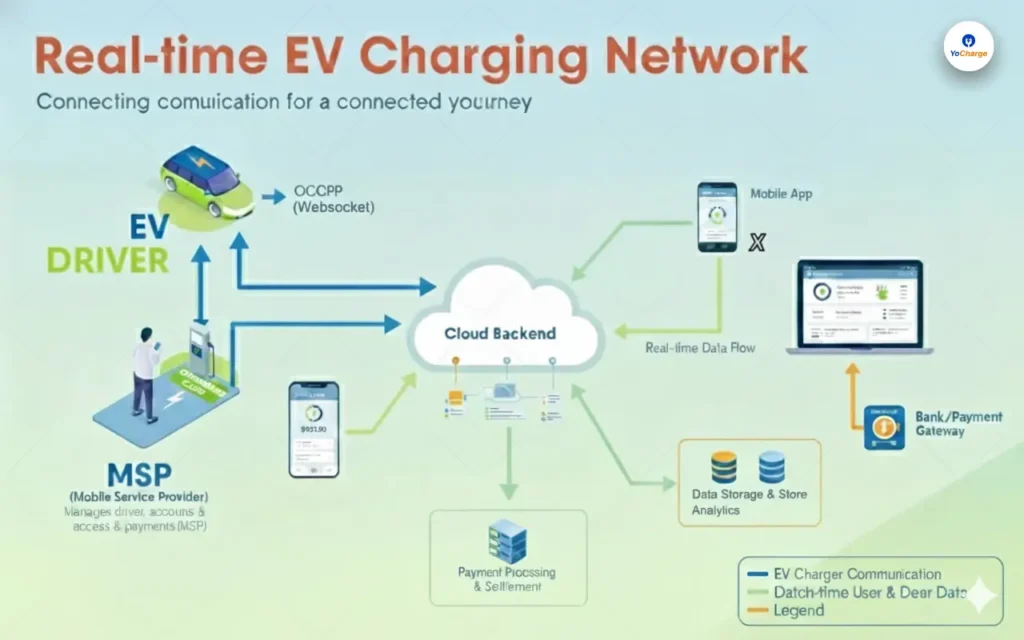
EV Charging Management Software helps EV charging operators and e-mobility service providers to manage the charging aspects so that they can maximise charger uptime and provides an exceptional charging experience to drivers. This software enables monetisation services to the charging station owners.
Why Does Everybody Need CMS?
Fleet operators, energy companies, charge point operators and others use charging management software to monitor and optimise electric vehicle charging operations. An EV-CMS should be reliable, scalable, and easy to connect to existing systems. The EV-CMS is the mission control center as it directly connects to EV chargers; it keeps track of charging activities and manages the network power consumption. It helps modify charger behaviour within parameters to reach specific targets.
The CMS is typically fully automated, does not need human attention, and sends critical alerts when necessary. The modern EV charging system help to optimise the charging site operations other than fundamental monitoring functionalities.
For Example, if the charging site uses time-variable energy prices, the CMS reduces the charger’s energy consumption when the energy is at its most expensive.
What end-to-end solutions an EV charging software should provide to its customers:
- EV charging operations
- EV charging billing
- EV Driver & Fleet management
- Integration and interoperability
- Energy management
1. Fleet optimisation and vehicle telematics
For fleet managers, having knowledge of EV charging software is essential to effectively access chargers and vehicle data. CMS (Charging Management System) provides a comprehensive fleet management system that enables ground operators to smoothly manage the operations of charging stations. With a deep understanding of EV charging software, fleet managers can utilize CMS to gain more visibility into critical information such as charging power, vehicle state of charge (SoC), and vehicle schedules. This knowledge empowers fleet managers to optimize charging processes, monitor vehicle performance, and ensure efficient utilization of charging infrastructure.
2. Payment methods
If chargers are part of a publicly accessible station, charging point operators might want to supply payment options for customers when charging EVs. This includes B2C credit card payment options and B2B service level contracts for other companies.
The payment system requires access to the total energy consumption and charging session data to calculate prices for customers. The CMS provide a billing system that divides types of operations, customers and vehicle types. It makes customers efficient in tracking payments with high flexibility and precision.
3. Hardware monitoring
Having knowledge of EV charging software is crucial for monitoring off-site charging hardware. The real-time control ensures people get a detailed picture of operations performed and don’t face any charging issues.
What causes downtime is typical charge point hardware errors such as broken spare parts, flaky wireless communication, OCPP messages and firmware errors. CMS notify charging point operators after identifying an error.
4. Access control
Electric vehicle charging stations generates energy costs. To control cost, CPOs often limit who has access to the chargers. For fleet operators, the ground staff and drivers are the accessible entity. In case of public charging, registered users or anyone with a credit card can access the service.
CMS provides various authentication options to restrict access or provide access to defined user groups. The access is given by RIFD cards, credit cards, mobile apps or the use of vehicle identifiers.
5. Alert system and troubleshooting
With their knowledge of EV charging software, the alert system in CMS allows users to know about hardware charging and operational issues. These alerts can reach customers via email, text, and CMS dashboard. The customer can troubleshoot any issue directly through charging management software.
6. Energy management and utility integration
The CMS can manage the charger power consumption and the site’s power. Using intelligent charging, a user can optimise site operations and receive signals for demand response or vehicle-to-grid events and response to variable energy prices such as TOU rates or Spot pricing.
Energy management includes external power sources such as building loads, solar power, and batteries. The external sources included in the charging behaviour allows more control over the entire station’s power consumption.
When we talk about local infrastructure, it has limited capacity in case of supporting the additional energy required in EV charging. Only a limited number of vehicles can charge at full power in an unmanaged EV charging environment. Energy management for EV charging is necessary as it distributes the load put on the local grid and helps utilities avoid costly infrastructure upgrades. It ensures that all vehicles at a charging location receive the power they need promptly.
A smart energy management software allows EV charging operators to monitor, manage and regulate power consumption. Energy from local storage or local renewable energy sources can be incorporated into the charging facility’s power supply and help save money and reduce the load on the grid.
EV charging management software makes charging and user’s life easy!!
As we can analyse, managing charging operations is not an easy task. Charging an EV is a complex task, especially after introducing new renewable energy programs, pricing systems such as TOU rates and the growing pressure on the electric grid.
YoCharge EV charging software system specialises in optimised algorithms and helps the user get a reliable and efficient charging operation. We provide our customers with numerous benefits such as operations, security, accounting and billing based on monthly subscription fees or commission. Our charging station management platform onboard both AC & DC charging stations and provide charging services to 2- wheelers, 3-wheelers, cars, buses and other electric vehicles.
To ensure the need of customers are met, our software combines different optimisation targets and applies multi-objective algorithms to reach the goal. Over the coming months and years, we will see rapid growth in the mobility and energy world. The software proves savvy for operators as an end-to-end solution to scale with markets and monetise and grow their business investments.

YoCharge
Yocharge is the EV Charging Management Software Company. As a trusted partner of Charge Point Operators our goal is to simplify the launching, operation & growth of EV Charging Services Business.
With help YoCharge you can launch your own branded EV Charging business in 7 days with custom mobile Applications.



